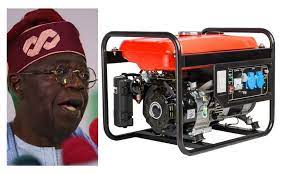The federal government is deeply troubled by the anguish in the land as double digit inflation eats up 30 per cent of the value of the money in everyone’s pocket. Inflation has pushed food prices beyond the reach of Nigeria’s 133 million people languishing in penury.
Government sincerely hopes to address the sufferings through the 2024 budget which is christened “Budget of renewed hope”. The federal government plans to spend N27.5 trillion on its services in 2024.
During the period government hopes to create jobs, make the investment environment more attractive and drastically reduce poverty.
Ironically, there are fears that Nigerians have lost faith in federal government budgets because of the horrendous missing of targets and failed promises in previous budgets.
While Nigerians do not believe the projections in the 2024 budget, they were generally excited recently when President Bola Tinubu assured that Nigerian refineries will come on stream before January 2024 and that the development will reduce the price of petrol drastically.
The president did not mention figures but many believe that the pump price of petrol from Nigerian refineries could drop as low as N350 per litre.
Private sector operators had all along complained that the pump price of petrol from Nigerian refineries would not make any significant difference from imported one. The president says they were wrong.
Tinubu’s promise on petrol price is more of renewed hope than the 2024 budget. The truth is that if the pump price of petrol from Nigerian refineries drops to N350 per litre, it would exert considerable downward pressure on inflation rate.
That is the easiest way the federal government can achieve its ambitious inflation target of the 2024 Appropriation Bill. The incurable optimist drawing up the 2024 budget believe that they could drag inflation down to 21 per cent during the year.
Everyone saw the inflation target for budget 2024 as unattainable as the ones set in the last eight years. And several indicators support the pessimism of the pundits.
The Central Bank of Nigeria (CBN) has lost control of the exchange rate of the naira which is the major factor fueling inflation in Nigeria’s import dependent economy.
The naira closed last week at N927 to the dollar as it unwittingly narrowed the gap between the official and parallel market rates. Even the budget’s exchange rate of N750 is elusive.
Under that circumstance, the only way government can stabilise the naira and tame inflation is by stopping the deplorable importation of refined petroleum products.
Nigeria spends close to $20 billion annually on refined petroleum products imports. If Nigerian refineries come on stream this month and as the Nigerian National Petroleum Company Limited (NNPCL) promised, Nigeria ends refined petroleum products imports, government would be saving close to $20 billion annually. That would reduce the rapacious demand pressure in the forex market and stabilise the naira.
The greatest gain from self sufficiency in refined petroleum products would emanate from considerable drop in their pump prices.
Diesel which is used to power the articulated trucks hauling food and fuel to different parts of Nigeria now sells for N1,100 per litre.
A 22-wheel truck hauling food from Borno state to Lagos would burn at least 1,000 litres of diesel at the cost of N1.1 million for the trip. That takes the total cost of the trip to a minimum of N2.5 million.
If the price of diesel from Nigerian refineries drops to N500 per litre, the cost of the trip could drop by half. That would exert enormous downward pressure on the price of food which in the absence of effective rail system is largely hauled by roads.
That is precisely why Nigerians are very excited by the president’s promise of cheaper refined petroleum products as Nigerian refineries come on stream.
The truth however is that no one expects NNPCL to manage Port Harcourt Refinery efficiently for it to deliver the goods promised by the president.
Besides, the federal government cannot deliver cheaper pump price of refined petroleum products and go to sleep with the hope that inflation would drop on its own.
Government’s absolute trust in the ability of the invisible hands of market forces of demand and supply to determine prices of goods and services in the country is partially responsible for inflation’s journey to the stars in the last two years.
Nigerian producers of goods and services are too greedy to be trusted with the power to allow the invisible hand of demand and supply to determine prices. They have obstructed the impartial determinant of prices with their selfishness and are fixing prices arbitrarily.
While the government does not have to control prices it must set a profit margin for the selfish producers of goods and services in the economy.
Dangote Cement has indubitably proved to the world that Nigerian manufacturers cannot be trusted with uninhibited price fixing mandate. The company manufactures cement at N1,200 per bag and sells at N5,500.
There are speculations that Nigerians now smuggle Dangote cement from Togo because it lands there at N1,800 per bag. Exploitation of Nigerians enables Dangote to make millions of dollars from cheap cement exports.
The company has priced cement beyond the reach of millions of homeless Nigerians. Only the government can rescue them from Dangote’s merciless grip.
Even the boisterous transporters need a measure of government regulation to make fares affordable. If the government crashes the pump prices of refined petroleum products and leaves transport fares in the hands of the National Union of Road Transport Workers (NURTW), the suffering in the land will persist.
Government must develop a formula for regulating fares and prices without re-introducing price controls.




